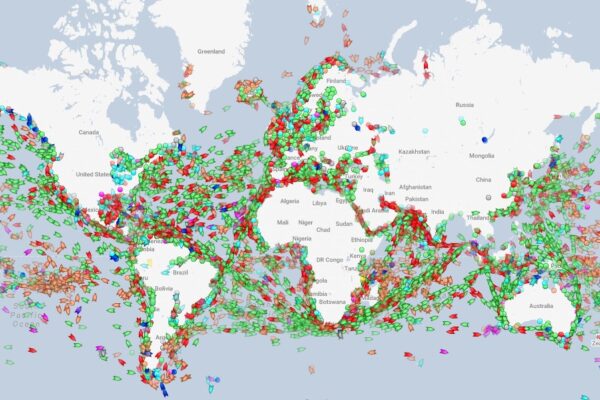Global Marine Traffic (Source: marinetraffic.com)
More than 90,000 commercial ships make up the world’s commercial fleet.
International cargo vessel operators faced some significant challenges last year, beginning with IMO2020 – the greatest historical change in fuel regulation – and ending by still trying to come to grips with the effects of Covid-19, especially crew changes. Shipping accounts for 90% of global trade, to the tune of 4 trillion dollars annually. It is also responsible for 3% of global emissions and, in Europe alone, the transport sector (which includes shipping) contributes to a quarter of greenhouse gas emissions.
From 01 Jan. 2020, vessels had to cut their emissions of sulphur oxides. Many ship owners took the option of urgently having their vessels fitted with equipment called “scrubbers†at shipyards in China, to comply with the new rules. However, Covid-19 temporarily closed down many of the retrofit yards in China, extending the waiting time for ships due for fitting.
Two important projects governing the environmental responsibilities of the shipping industry are under scrutiny as we enter 2021.
The European Battery Project
The European Union has announced funding for Current Direct, a three-year project proposing an innovative lithium-ion cell optimized for sea transport. The overarching aim of the Current Direct project is to develop and demonstrate an innovative interchangeable waterborne transport battery system and ‘Energy as a Service (EaaS)’ Platform in an operational environment that facilitates fast charging of vessels, fleet optimization and novel business models.Â
Management of Ballast Water
The International Convention for the Control and Management of Ships’ Ballast Water and Sediments (BWM Convention) entered into force over three years ago, however the ship classification society Nippon Kaiji Kyokai (ClassNK) says that the installation deadlines for a large number of its registered ships are still waiting for 2022 to install BWM systems. As of the end of November (2020), 7,220 of the 9,159 ships checked were obligated to install the system, but only 3,982 of these have so far completed the installation. Â
Under the rules of the convention, all ships engaged in international trade are required to manage their ballast water so as to avoid the introduction of alien species into coastal areas, including exchanging their ballast water or treating it using an approved ballast water management system. Regardless of the delays of the past year, it is hoped the shipping industry will speed up compliance with environmental standards.
For information on all aspects of shipping, contact us here at Colless Young. We are Licensed Customs Brokers and International Freight Forwarders. Colless Young offers professional advice on import tariffs, by-laws and clearance procedures through all Australian ports and airports. We are based in Brisbane and our logistics services cover air and sea freight, including exports, processing consignments through customs and quarantine, warehousing and trucking.

